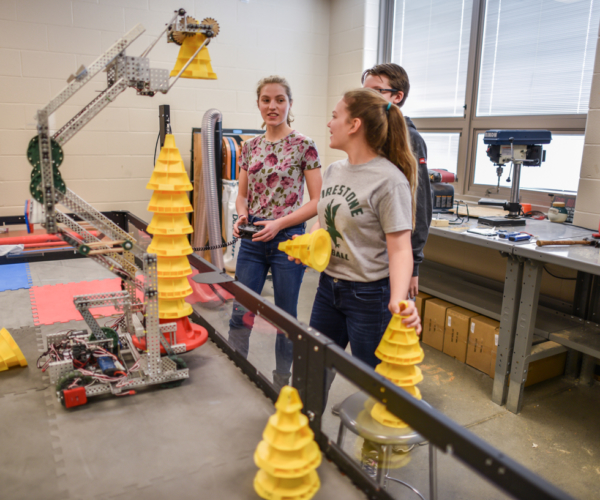As superintendent Dave Deets enters the 2021-22 school year at Harmony Emge School District 175 in Belleville, Illinois, he’s facing a situation like no other—one that requires playing catch-up post-pandemic, striving to re-engage returning students and helping teachers incorporate new technology into their lessons, not to mention navigating the mine-laden landscape of masking and vaccination rules and parental discord.
Deets, a member of DA’s Leadership Institute for four years now, has relied on the sense of community fostered among education leaders from across the country who converge at the Institute’s annual Superintendents Summits to help get him through the rough waters of the job, which this past year were unprecedented. “We connect, share our struggles and ideas for overcoming problems, and provide support to one another,” he says of the gatherings. “It’s a great experience.”
Here, Deets shares his takeaways from the previous school year and how to use the lessons learned from it to improve the educational experience going forward.
What are the biggest challenges being faced by districts in the 2021-2022 school year?
There are so many different things we’re dealing with—Covid, political issues, racial tension—but I think maybe the biggest challenge comes because we missed so much time in school. While I’m proud of our combination hybrid/modified in-person schedule, it would be a lie to say our students received the service they deserve. This year, I hope we can refocus on what matters the most: the students. We need time to work with them, close academic gaps, build relationships, make them feel safe and secure about being in school again. So, our biggest challenge is, how do we make up for the lost time? It won’t just be a one-year process.
Has Harmony-Emge SD put any new programs in place as a result of what they’ve learned from a year of remote learning?
Our reaction has been broader, such as incorporating more technology and addressing how we use it in the classroom. I don’t believe tech is a substitute for teachers, but it can absolutely enhance how we teach and reach our families. As we return to school, the lessons of the past year continue. Like how we look at sick days: If a student is sick, they can pull up videos and catch up. We can use remote learning for emergency days—instead of a snow day where there’s no school, teachers can stream lessons from their homes. We’ve also hired a part-time technology coach, who will work with teachers on how to best incorporate Google technology into their lessons.
More from DA: Join our October Superintendents Summit at The Ballantyne
You’re a member of DA’s Leadership Institute. What are some of the most valuable takeaways you’ve experienced, both personally and professionally?
For me, the summits really do stand out, not just because of the exposure to new ideas and programs but because you get to meet with other supers from around the country, and no matter how different our districts are—in terms of size, socioeconomic status, politics—we all encounter the same issues.
With superintendents leaving districts in droves across the country, what advice would you offer to incoming superintendents, particularly less seasoned ones?
Take care of yourself and make mental and physical health a priority. If you don’t, you can’t take care of your district. This past year highlighted the importance of not going it alone. A big key to my sanity last year was the tremendous cooperation among supers in the districts in my area—talking on a weekly basis to vent, sharing ideas, and networking with others who understand is crucial.
What, if any, good came out of the past year’s struggles?
A higher level of understanding of the importance of education. I hope our community and parents now have a higher degree of respect for how hard this job is. This generation of educators did something no other in modern America has done—lived and taught through a pandemic. We had to completely rethink and retool the way we educated our students. It’s hard to imagine a more stressful situation than that, and we did it. How can that not help us move forward? The system is now stronger and better for our kids because of it.









